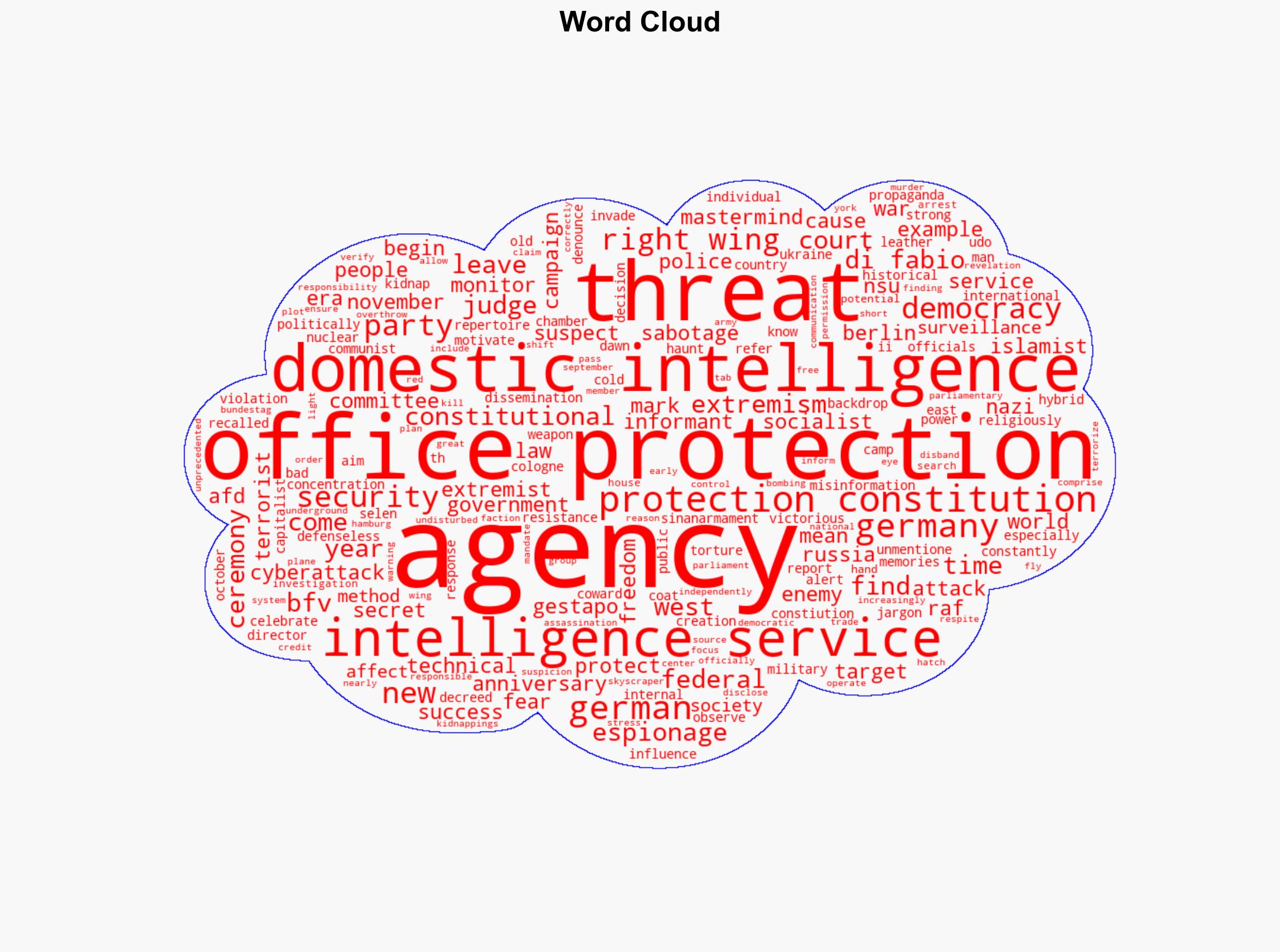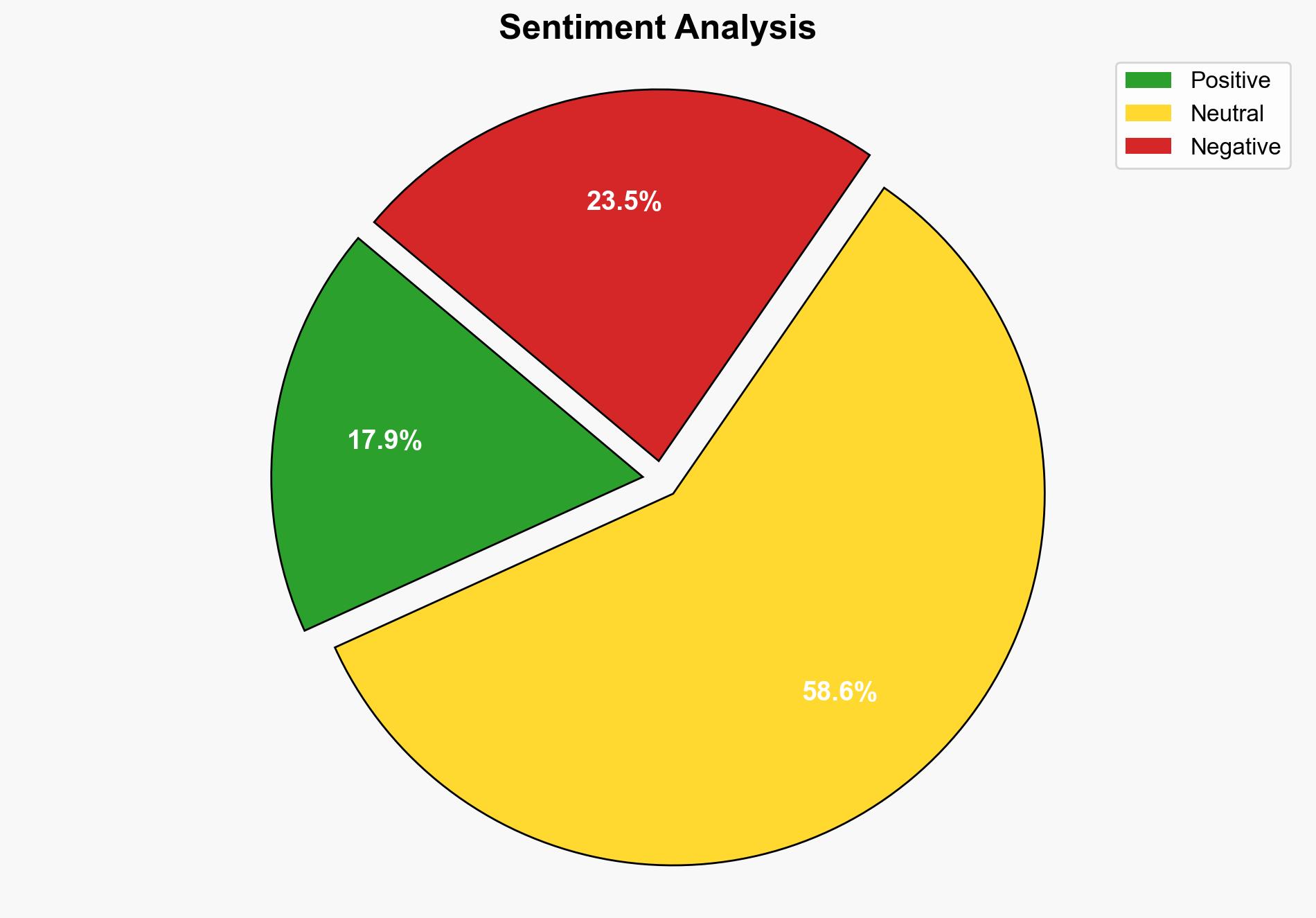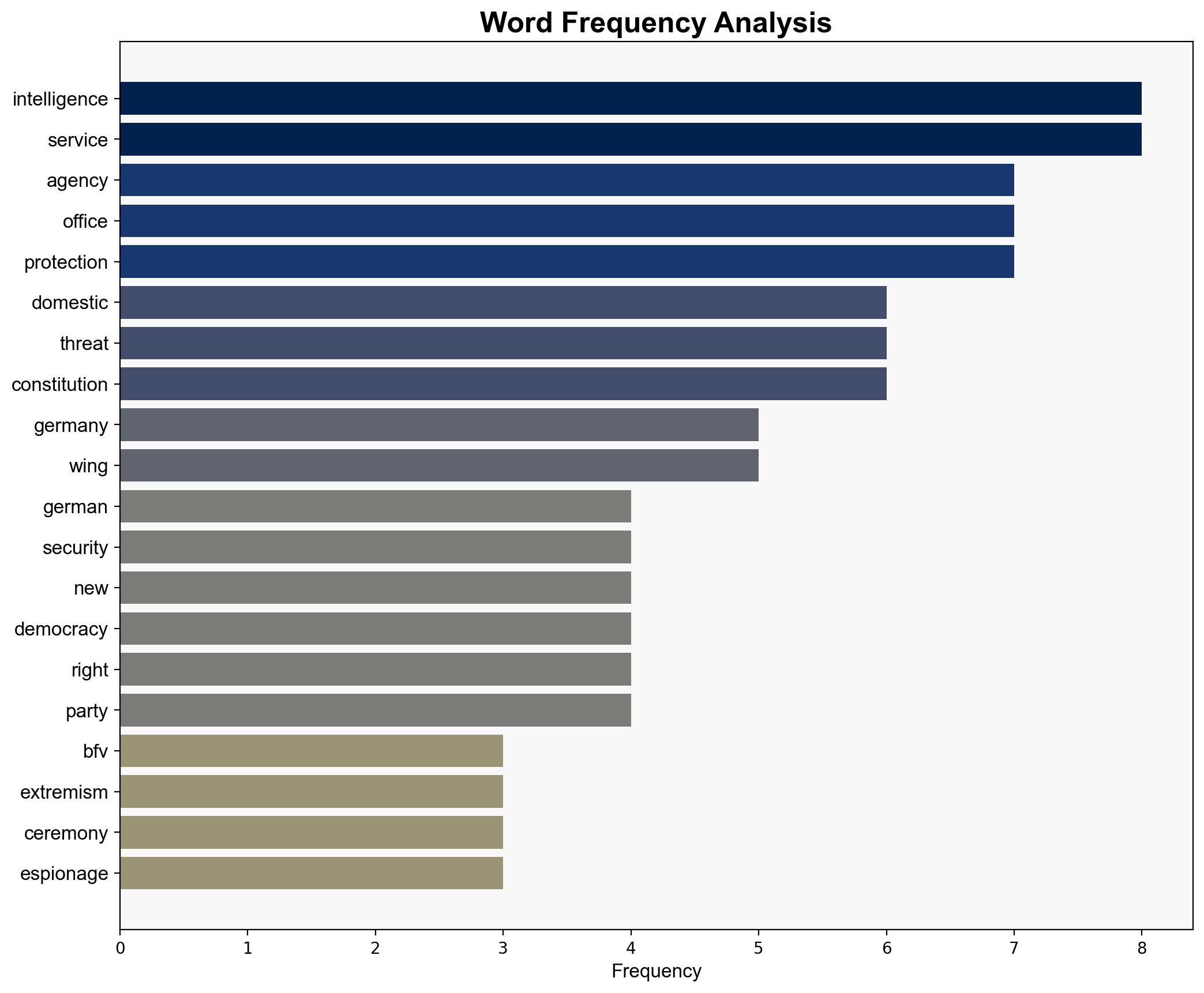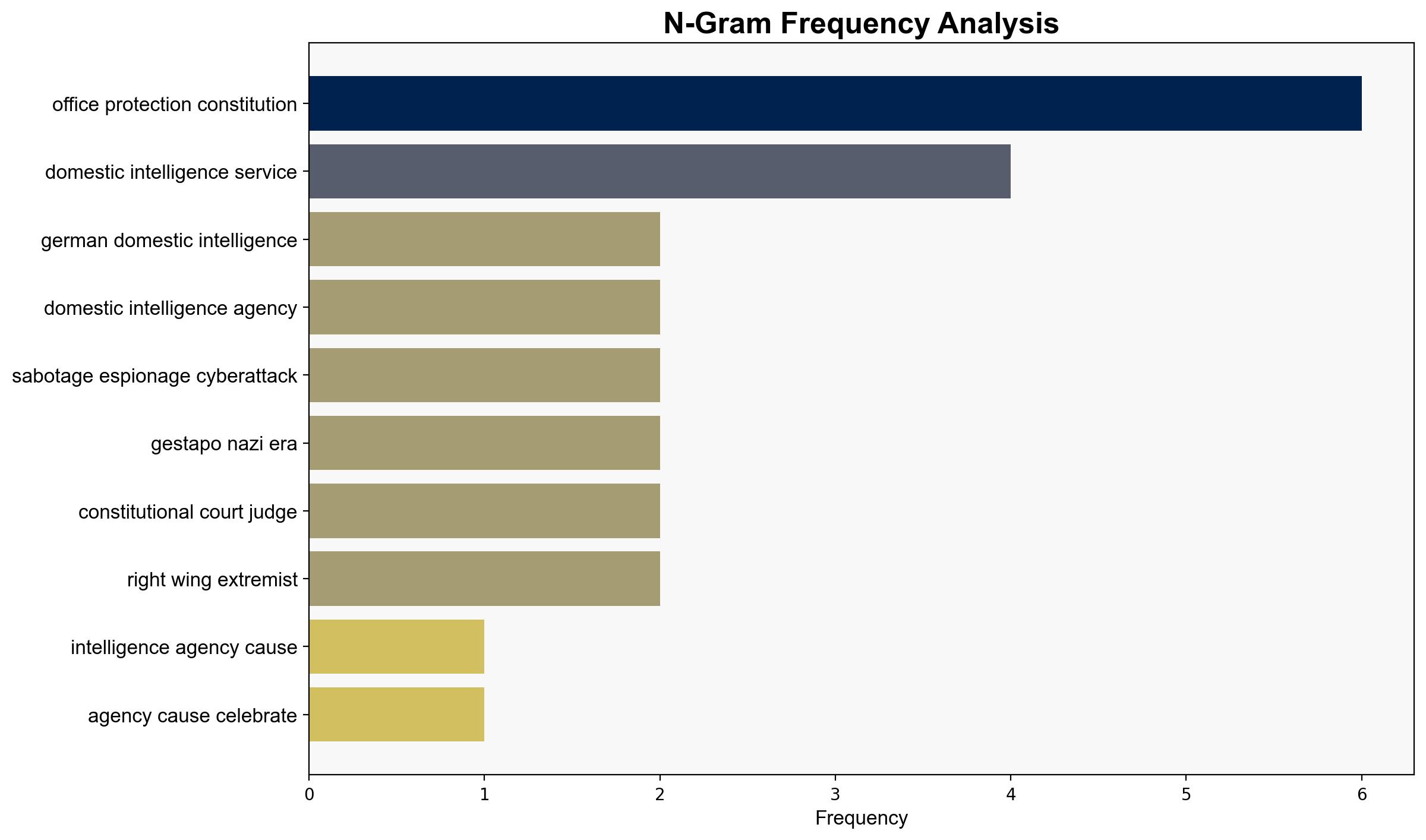German domestic intelligence agency sees cause to celebrate – DW (English)
Published on: 2025-11-07
Intelligence Report: German domestic intelligence agency sees cause to celebrate – DW (English)
1. BLUF (Bottom Line Up Front)
The most supported hypothesis is that the German domestic intelligence agency (BfV) is effectively adapting to contemporary threats, including hybrid threats from Russia and domestic extremism, despite historical and operational challenges. Confidence level: Moderate. Recommended action: Strengthen inter-agency cooperation and transparency to enhance public trust and operational effectiveness.
2. Competing Hypotheses
1. **Hypothesis A**: The BfV is successfully evolving to address modern threats, such as hybrid warfare and domestic extremism, thereby ensuring national security.
2. **Hypothesis B**: The BfV’s operations are hindered by historical mistrust and operational inefficiencies, limiting its effectiveness in countering current threats.
Using ACH 2.0, Hypothesis A is better supported due to recent operational successes and strategic shifts in focus towards hybrid threats and extremism. However, historical mistrust and past scandals (e.g., NSU case) lend some credence to Hypothesis B.
3. Key Assumptions and Red Flags
– **Assumptions**: It is assumed that the BfV has the necessary resources and political support to adapt to new threats. Another assumption is that public perception can be shifted positively through transparency and success.
– **Red Flags**: Historical scandals and mistrust could undermine public confidence. The lack of independent verification of successes is a potential blind spot.
4. Implications and Strategic Risks
The BfV’s focus on hybrid threats and extremism is crucial, given the geopolitical tensions with Russia and domestic political polarization. Failure to effectively counter these threats could lead to increased influence operations, destabilization, and potential violence. Economically, cyber threats could impact critical infrastructure, while politically, public mistrust could weaken democratic institutions.
5. Recommendations and Outlook
- Enhance transparency and public communication to rebuild trust and legitimacy.
- Increase collaboration with international intelligence agencies to counter hybrid threats effectively.
- Scenario Projections:
- Best Case: Improved public trust and international cooperation lead to effective threat mitigation.
- Worst Case: Continued mistrust and operational failures result in significant security breaches.
- Most Likely: Gradual improvement in operations with ongoing challenges in public perception.
6. Key Individuals and Entities
– Sinan Selen
– Udo di Fabio
– Alexander Dobrindt
7. Thematic Tags
national security threats, cybersecurity, counter-terrorism, regional focus





